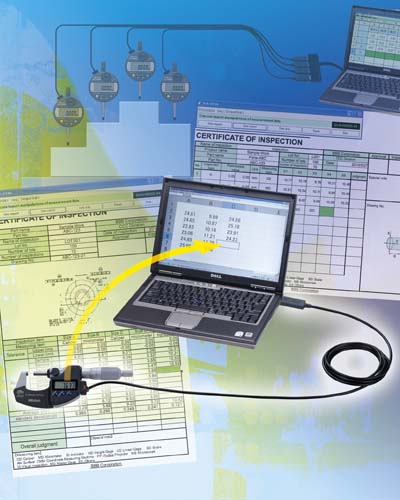USB-ITN Input Tool
USB-ITN Input Tool
Mitutoyo America Corp. announces the availability of a new USB input device that streamlines the interfacing of Mitutoyo Digimatic hand measurement tools with PCs.

Mitutoyo America Corp. announces the availability of a new USB input device that streamlines the interfacing of Mitutoyo Digimatic hand measurement tools with PCs. The new USB Input Tool Direct: USB-ITN includes seven models — each model is dedicated to a specific type of cable plug/connector pin configuration.
The new design negates the need for two cables, lowering overall costs by as much as 32 percent. When connected to a PC's USB port, the USB Input Tool is automatically recognized as an HID (Human Interface Device) keyboard device, a standard Windows driver. No special software is required. A USB keyboard signal converter translates Digimatic display values to keyboard signals. This enables the direct inputting of data into the cells of off-the-shelf spreadsheet software, such as Excel.
Data can also be automatically entered into Notepad or similar programs. Data capture is much faster than manual entry, the company reports. Additionally, reliability is increased because transcription errors are eliminated.
Optional Mitutoyo USB-ITPAK Measurement Data Collection Software further enhances the productivity of USB Input Tool Direct: USB-ITN by facilitating set-up. Excel input destinations (workbook, sheet, or cell), cell-fill direction (right or down), cell fill intervals, and other settings can be specified. Sequential, batch, or individual measurement methods can be selected. USB-ITPAK also enables mouse button, function key, and foot-switch functions. Categories of Mitutoyo Digimatic hand tools supported by USB Input Tool Direct: USB-ITN include: calipers, micrometers, indicators, depth gages, height gages, bore gages, surface roughness testers, laser scan micrometers, linear gage/counters, and hardness testing machines.





